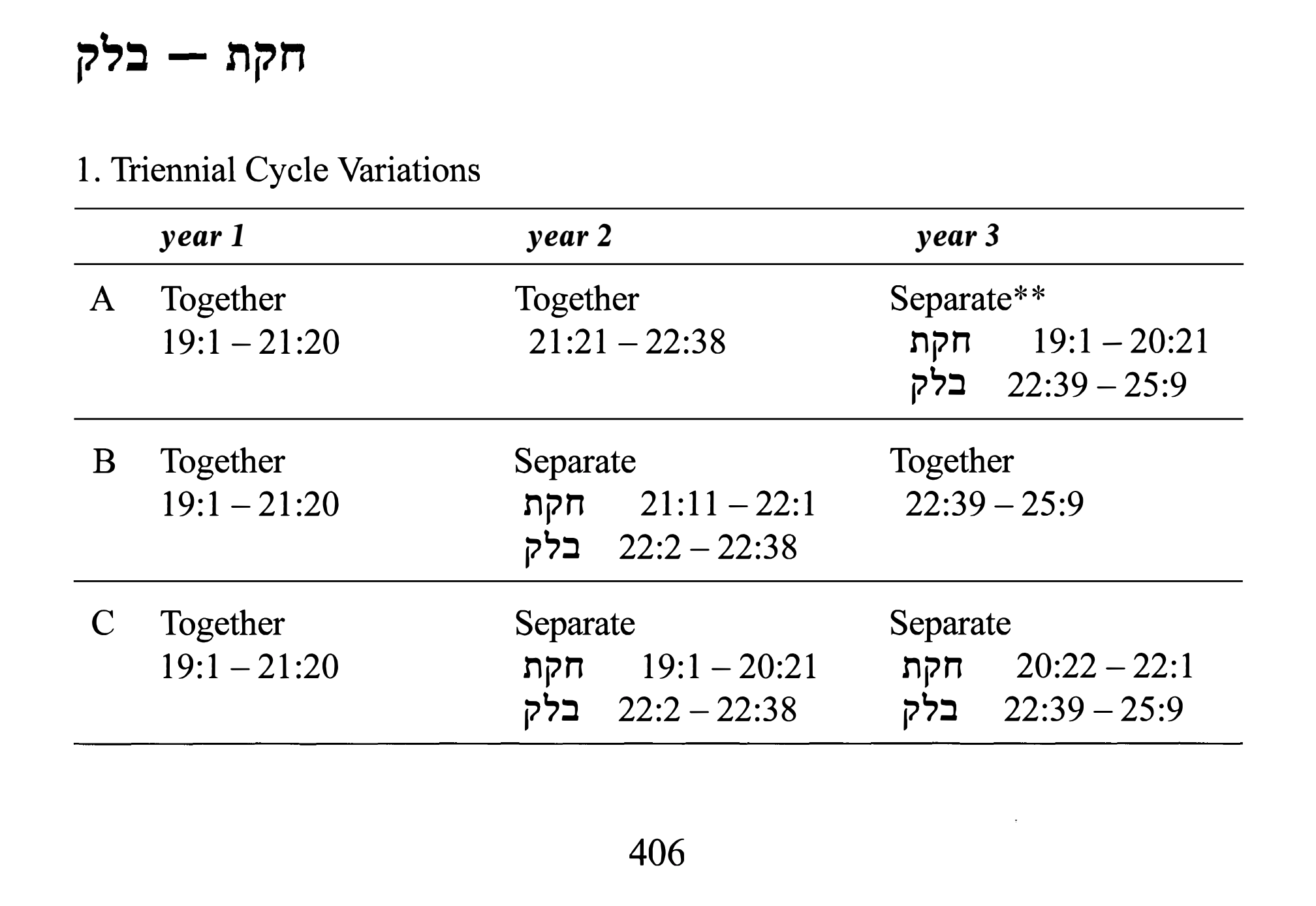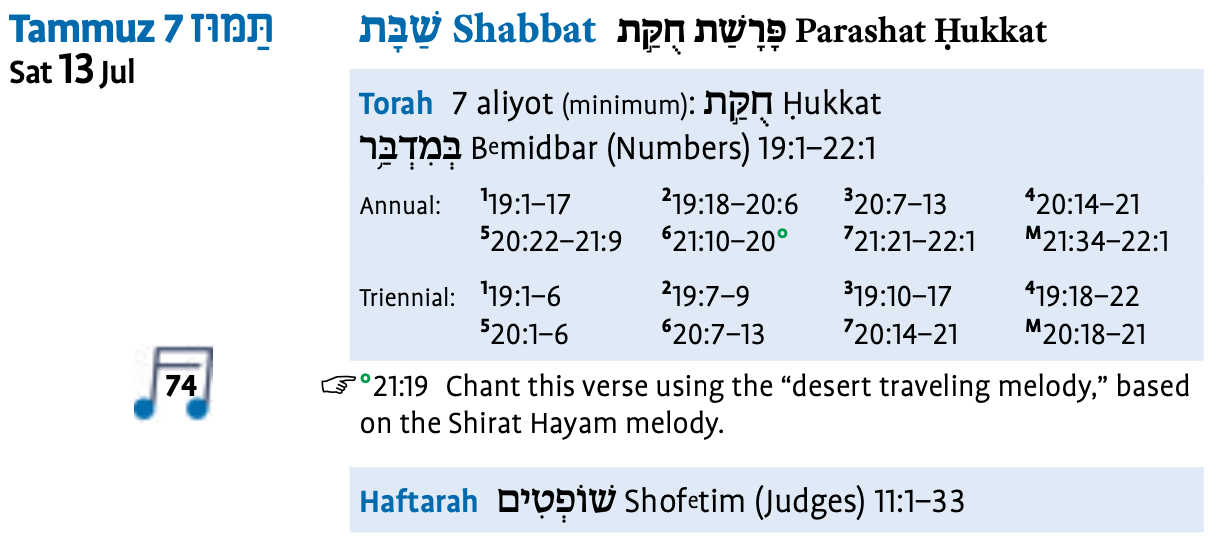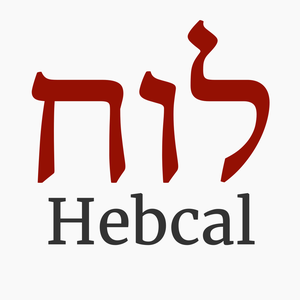Your comments
Thanks for your careful attention to Hebcal's Torah readings. We can confirm that yes, the readings are 100% correct.
The pattern for Chukat-Balak for the current 3-year cycle is Together-Separate-Separate. This maps to Variation C in A Complete Triennial System for Reading the Torah published by the Committee on Jewish Law and Standards of the Rabbinical Assembly, 1988. Here is the relevant excerpt from the 1988 paper:

Yes, there is a document called Modification of the Triennial Cycle Readings for Combined Parashot in Certain Years written by Rabbi Miles B. Cohen, 2020. However, this responsa applies to Variation A, not Variation C.
Lastly, the Miles Cohen luach agrees with both Hebcal and the conservative responsa:

Shabbat shalom!
Thanks for the catch about ום נישואין. We've changed the rendering of "יום נישואין 50 לאבא ואמא" to be consistent with your suggestion for birthdays.
Thanks again for the continued suggestion that "יום השנה" is better than "יארצייט" - the Wikipedia article is persuasive. My Hebrew comprehension is very poor, but Google Translate gives me a very general sense of what it's trying to say.
I'm going to consult a bit with the Hebcal co-founder Danny (who moved to Israel 25+ years ago) before replacing יארצייט with יום השנה
Thanks, this is all tremendously helpful. I understand that although יום השנה sounds generic to me, it has an implied meaning of יום השנה שנפטר (please forgive my poor Hebrew).
In English, the term "anniversary" is often used for "wedding anniversary", but it has a more neutral meaning - "anniversary" could easily be used for measuring the number of years that you have been employed in the same job, or another momentous day (like the date you became a citizen). Maybe this is because in American culture (outside of Judaism) the anniversary of a day of death is not typically observed.
If Hebcal used יום נישואין for the "Anniversary" type on our calendar, it would probably be correct for most instances - and based on our experimental implementation it would only be used for names that contained Hebrew letters - so this sounds like a good step.
Can you send us a private message to mradwin@hebcal.com with the download.hebcal.com URL that you subscribed to in Google Calendar? We may be able to assist in the data migration and move this to an editable calendar for you
Also, please note the &yto=on option as specified on the Jewish Calendar API documentation.
Thanks, this is helpful. יום השנה seems much more generic because it could also be used for an anniversary, such as a wedding anniversary?
What about יום פטירתו? This is something a friend in Israel suggested.
We're going to experiment with יאָרצײַט for now, and are really open to other suggestions, especially if there are good sources you can point us to.
We're working on adjusting the title of the event to be in Hebrew if the name specified contains Hebrew characters. Here's an example of what we're experimenting with
| יאָרצײַט ה-28 של פלוני (י״ג חשון) |
There seem to be differing opinions about whether the event should be called יארצייט, ום השנה, נחלה, or even יום פטירתו
I am not a Hebrew speaker - so I could use a bit of guidance here. Do you have a recommendation?
We've begun implementing this and would like your recommendation for how to pick good titles for these calendar events. I am not a Hebrew speaker so I'm making some guesses.
Here is a possible rendering of a yahrzeit for an event with the person name סבא רבא
| נחלה ה-24 של סבא רבא (י״ג חשון) |
| יום הולדת ה-50 של אִמָא (ט״ז שבט) |
Should we specify יום הולדת עברי instead of just יום הולדת to make it clear that the birthday is based on the Hebrew calendar and not the Gregorian calendar?
Is של סבא רבא better than לסבא רבא ?
If you wish to use the Israel holiday schedule (and not the Diaspora, which is the default), use &i=on per the documentation. In Israel there is only one day of Yom tov for Shavuot, so there will be no "Shavuot II" event.
Customer support service by UserEcho


Hi, you can download Hebcal events to CSV using there instructions
https://www.hebcal.com/home/12/outlook-csv-jewish-holidays
Instead of importing into Outlook, just import into Excel